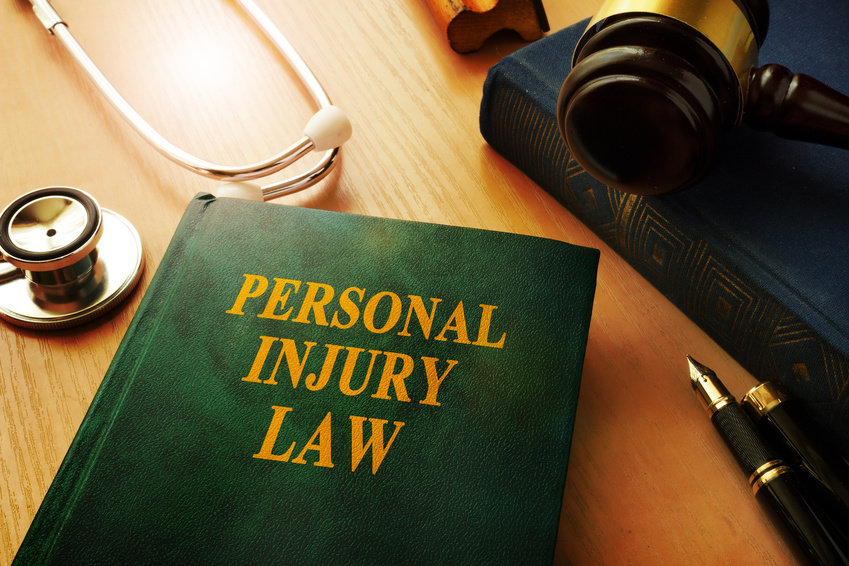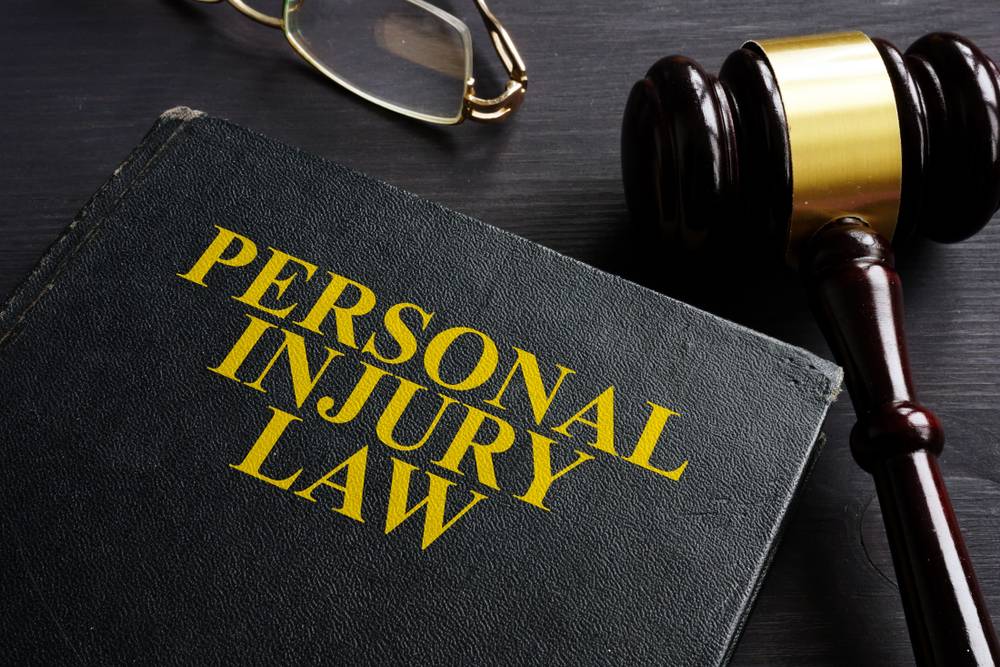Recognizing the Function of an Attorney in Personal Injury Cases: What You Need to Know
Recognizing the role of an attorney in personal injury situations is important for those looking for justice. Lawyers play a pivotal function in guiding via the complexities of the legal system. They collect proof, develop liability, and discuss with insurance provider. Nevertheless, several individuals are unaware of the full degree of an attorney's duties. What certain approaches do they employ to safeguard their clients' legal rights and safe reasonable settlement? The solutions might stun you.
The Relevance of Legal Depiction in Personal Injury Cases
Lots of people may think about dealing with personal injury claims on their very own, the intricacy of lawful processes frequently necessitates professional guidance. A lawyer focusing on personal injury law brings crucial know-how to a case, navigating intricate lawful structures that can bewilder the untrained person - Personal Injury Lawyer. They recognize the subtleties of obligation, insurance arrangements, and laws of limitations, guaranteeing that customers do not miss out on crucial deadlines or possibilities
Legal representation can significantly enhance the opportunities of acquiring reasonable payment. Attorneys are knowledgeable in examining truth worth of claims, considering clinical costs, shed salaries, and psychological distress. They possess the arrangement skills needed to deal effectively with insurer, who usually aim to lessen payments. Having an attorney can supply psychological assistance and lower anxiety for clients throughout a difficult time, enabling them to concentrate on healing while their instance is professionally handled.
Collecting Proof and Structure a Strong Case
In personal injury situations, the collection of numerous kinds of evidence is vital for developing responsibility and supporting a client's claim. Paperwork, consisting of clinical documents, mishap records, and witness declarations, plays a vital duty in building a strong case. Attorneys should prioritize complete proof collecting to boost the chance of a favorable outcome for their clients.

Kinds Of Proof Required
When seeking an accident instance, the collection of durable evidence is vital for establishing obligation and supporting the claimant's story. Trick sorts of proof include medical documents recording injuries, which supply an accurate basis for insurance claims of physical damage. Photographic evidence records the scene of the case, while witness declarations can support the plaintiff's account. Furthermore, police records might use an official perspective on the occasion. Monitoring video footage, when available, offers as an effective device to corroborate cases. Expert statement may make clear complicated issues, specifically in situations involving technological details. Jointly, these types of proof assistance create a thorough instance that improves the chance of a positive outcome for the victim.
Relevance of Paperwork
Documentation plays a crucial role in the success of personal injury situations, acting as the foundation whereupon claims are constructed. Accurate and in-depth documents enables lawyers to collect and provide vital evidence, such as medical documents, accident reports, and witness declarations. This proof not only corroborates the victim's insurance claims yet also enhances their instance for compensation. In enhancement, complete documents helps in establishing the degree of injuries and the influence on the victim's life, helping with arrangements with insurance policy firms. By thoroughly organizing and managing these documents, lawyers can properly advocate for their clients, guaranteeing that no considerable information are forgotten. Inevitably, well-maintained documentation is vital for attaining desirable results in personal injury litigation.
Recognizing Responsibility and Negligence

In personal injury cases, lawyers play a considerable role in collecting evidence and building a strong situation around these concepts. They analyze the conditions surrounding the incident, identify accountable celebrations, and verbalize the breach of duty that took place. Recognizing these concepts is important for both customers and attorneys as they browse the complexities of personal injury legislation.
Negotiating With Insurance Policy Companies
Discussing with insurance provider needs a calculated strategy to protect fair settlement for personal injury cases. Attorneys play a vital duty in this process, leveraging their expertise of insurance coverage and settlement strategies to promote for their customers efficiently. They begin by gathering complete documents, including medical records, crash records, and proof of problems, to construct an engaging situation.
Lawyers usually launch the arrangement by offering a need letter laying out the case's information and the wanted settlement quantity. This letter acts as a starting point for discussions. During settlements, attorneys remain assertive yet professional, countering reduced deals with valid proof and highlighting the staminas of their situation.
Additionally, attorneys comprehend the value of patience in negotiations, as insurer might utilize strategies to delay or decrease payments. Ultimately, their competence aids ensure that site clients obtain a settlement that accurately mirrors the extent of their losses and injuries.
Getting ready for Trial: What to Anticipate
Preparing for test in a personal injury case includes a systematic technique to recognize the trial procedure and the essential proof that will certainly exist. Attorneys have to detail the actions of the trial, guaranteeing their customers know what to anticipate. In addition, they must identify and arrange crucial evidence that will certainly support the case and affect the jury's choice.
Trial Process Review
The trial procedure in personal injury instances needs cautious company and calculated preparation. Attorneys need to prepare their case diligently, guaranteeing all essential paperwork, witness checklists, and legal disagreements remain in order. The discussion of opening declarations establishes the phase, allowing each side to describe their viewpoint. Following this, the complainant's case unfolds, where experts and witnesses offer statements sustaining the case. The defense then provides its situation, often aiming to test the complainant's debates and proof. Throughout the anchor trial, attorneys should stay vigilant, adapting techniques as needed based upon the unraveling characteristics in the courtroom. The trial wraps up with shutting debates, where both sides summarize their placements before the jury ponders, bring about a decision that can substantially impact the lives involved.
Key Evidence Discussion
While the trial process calls for a thorough understanding of legal strategies, the discussion of essential evidence stands as an essential element in encouraging the jury. Attorneys must meticulously gather and arrange evidence, ensuring it matters, permissible, and engaging. This includes clinical documents, accident records, witness testimonies, and professional point of views. Effective storytelling via these pieces of evidence can substantially influence a court's assumption. Visual aids such as photographs or layouts may additionally improve comprehension and retention. In addition, lawyers should prepare for counterarguments and prepare to resolve them, strengthening the strength of their instance. Eventually, the way proof exists can identify the result of the test, making it crucial for lawyers to master this essential element of litigation.
The Function of Expert Witnesses in Personal Injury Situations
Professional witnesses play an important role in personal injury cases, as their specialized understanding can greatly affect the outcome of litigation. These specialists supply critical understandings right into complicated issues that require expertise past the ordinary juror's understanding. Medical specialists can elucidate the degree of injuries and the essential treatment, while mishap restoration professionals can clarify exactly how a case occurred.
Their statement usually helps establish obligation and the extent of damages, making it simpler for juries to understand the subtleties of a case. Additionally, professional witnesses add to the credibility of today proof, enhancing debates made by attorneys. In many instances, their involvement can persuade jury perceptions and inevitably affect negotiation negotiations. Consequently, choosing the right expert witness is a critical strategy for attorneys intending to enhance their situation and supporter effectively for their customers' legal rights and countervailing cases.
Securing Your Legal Rights Throughout the Legal Process
In the quest of justice within personal injury cases, safeguarding the rights of clients continues to be a basic duty for lawyers. Throughout the legal process, lawyers function as supporters, ensuring that clients understand their civil liberties and the effects of their choices. They carefully navigate complex lawful systems, securing clients from potential challenges that could threaten their cases.
Attorneys also function to collect evidence, communicate with insurer, and bargain settlements, all while maintaining their clients educated. They ensure that clients do not approve unreasonable offers or overlook substantial lawful deadlines. By giving specialist advice, attorneys empower clients to make educated selections, reinforcing their legal rights.
Furthermore, attorneys get ready for possible litigation, furnishing customers try this site with knowledge about court treatments and feasible end results. This detailed assistance aids clients really feel safe and secure and confident, understanding their civil liberties are supported throughout the lawful journey. Eventually, an attorney's duty is essential for achieving a reasonable resolution in personal injury situations
Frequently Asked Inquiries
How Much Does Working With a Personal Injury Attorney Normally Cost?
Hiring a personal injury lawyer typically costs around 33% of the settlement quantity, though costs might differ based upon intricacy and jurisdiction. Some attorneys may also provide backup charge setups, ensuring repayment only upon successful healing.
What Should I Do Quickly After an Injury Occurs?
Immediately after an injury occurs, one ought to seek medical attention, document the event details, gather witness information, and notify relevant authorities. These steps are vital for making sure appropriate care and preserving proof for any kind of possible cases.
How much time Does an Accident Situation Typically Take?
An injury situation typically takes anywhere from a few months to a number of years to resolve, depending upon factors like situation intricacy, arrangement procedures, and court routines. Each situation is special and differs substantially in period.
Can I Manage My Personal Injury Situation Without an Attorney?
Yes, a person can deal with a personal injury case without an attorney. Steering through legal intricacies, recognizing procedures, and discussing negotiations may prove challenging, possibly affecting the end result and settlement received in the instance.
What Kinds Of Damages Can I Claim in an Accident Case?
In an injury situation, one can claim various damages, including medical expenditures, shed incomes, discomfort and suffering, emotional distress, residential property damages, and in some circumstances, revengeful problems intended at preventing future oversight.
Understanding the duty of an attorney in individual injury cases is crucial for those looking for justice. An attorney specializing in individual injury regulation brings essential know-how to a situation, navigating elaborate lawful frameworks that can bewilder the inexperienced individual. In personal injury cases, attorneys play a significant duty in collecting proof and constructing a strong situation around these ideas. In the search of justice within individual injury situations, securing the rights of customers remains an essential duty for attorneys. An individual injury situation usually takes anywhere from a couple of months to numerous years to settle, depending on elements like instance intricacy, arrangement processes, and court schedules.